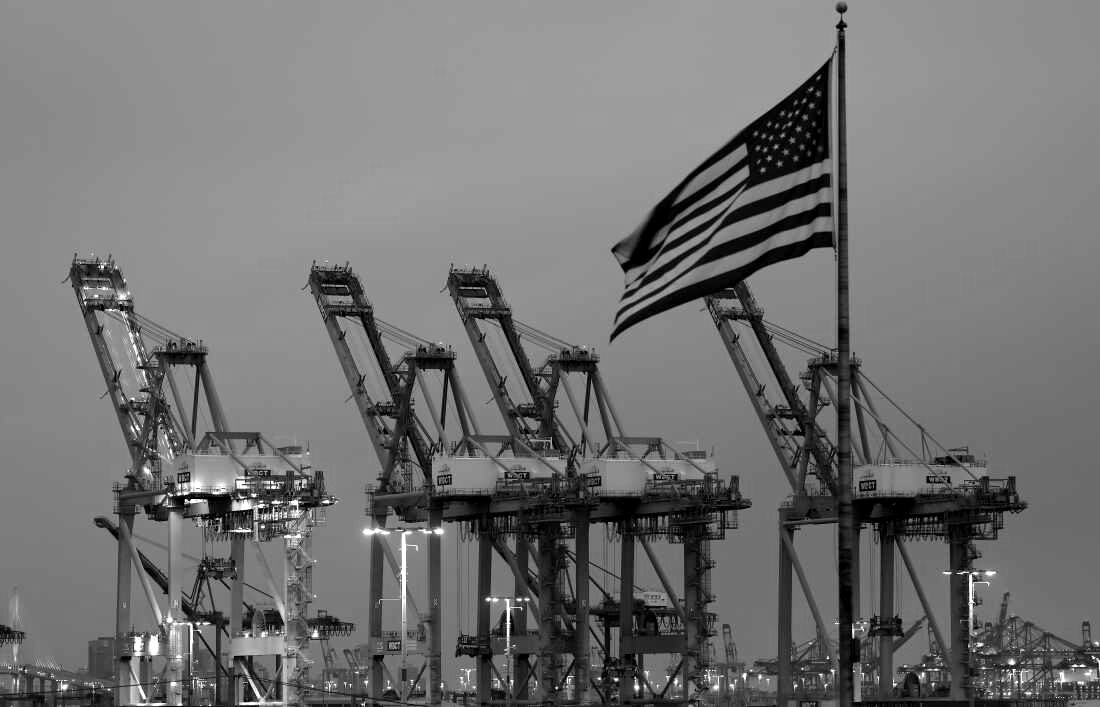LOS ANGELES, May 12 (RTSG) – Last week, the America’s busiest container port saw about one-third fewer shipping containers compared to the same time last year — an even steeper drop than what was recorded during the worst of the Great Recession. Over 20% of the large cargo ships scheduled to dock in Los Angeles this month have already canceled, and that figure is expected to increase.
Trump’s 145% tariffs – despite signals that he would lower them to 80% – are already slowing down the flow of electronics, industrial parts, and other critical goods that most Americans consider essential to the daily functioning of society. Truckers who move these goods from the port to logistics centers are selling their trucks as a result of dramatically slowed business.
This month, LA’s container imports are expected to abruptly drop 25% (according to NPR, this plunges down to 35%), with ramifications for the rest of the economy. Consumer prices are predicted rise in tandem as well, even though they were on a slower incline just a few months ago.
Thus far, former President Trump has expressed limited concern for those impacted by the port slowdown. Last week, he described the situation as “a good thing, not a bad thing,” arguing that it reflects a reduction in what he characterizes as “unfair” trade with China; something he claims has significantly undermined American manufacturing.
According to some experts, these policies are specifically aimed at establishing an American microchip industry. In 2022, Congress approved the CHIPS act, a $52.7 billion program to encourage and subsidize domestic chip production. Companies such as TSMC – the world’s largest semiconductor manufacturer – and Samsung- the leading global smartphone producer – have emerged as major beneficiaries of recent legislation. TSMC secured $6.6 billion in grants and loans to support the development of manufacturing facilities in Arizona, while Samsung is set to receive approximately $6 billion for a plant in Texas.
With the backing of Trump, TSMC recently announced an additional $100 billion investment in the United States, supplementing the $65 billion already committed for the construction of three facilities. However, both TSMC and Samsung have encountered significant challenges in executing these investments, including escalating costs, shortages of skilled labor, construction delays, and pushback from local labor unions.
And despite Trump’s attempts to push them into the US market, the Taiwan-based TSMC has said that most of its manufacturing will remain in Taiwan, especially its most advanced computer chips.
China, on the other hand, seems to be relatively unaffected by the tariffs, with goods now shipped in increasing numbers to Europe, Asia, and even emerging markets in Africa and Southeast Asia.
TGS Logistics, a trucking firm based in Fresno, California, has laid off 20 drivers and six office workers in the past three months. Unless cargo volumes rebound soon, their COO Robert Loya fears he will need to let more people go.
Tightening their wallets, TGS given up the purchase of more than two dozen quarter-million dollar trucks and is considering outsourcing some back-office jobs to nations such as Colombia, as many of its competitors already have done.
“Right now we’re hurting. It could be a three-to-six-month hurt. And hopefully then in the long run, yes, the intended goal comes to fruition,” Loya said. “But in the meantime, we have to figure out how to survive.”
Written by Seraph





